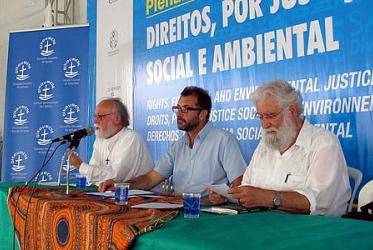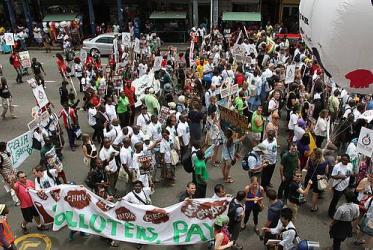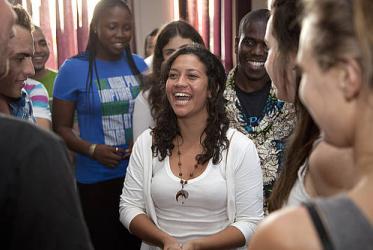Displaying 681 - 700 of 803
14 August 2012
WCC forum issues a call to promote “economy of life”
22 June 2012
WCC to highlight ethical perspectives at Rio+20
11 June 2012
Churches on the way to Rio+20
30 April 2012
Ethics and human rights focus for Rio+20 summit
22 March 2012
WCC general secretary recalls anti-apartheid movement
11 January 2012
Searching for a new financial and economic architecture
20 December 2011
Youth promise active involvement for environmental justice
14 December 2011
Durban outcome is not enough, says WCC
13 December 2011
Religious voices advocate for climate justice at Durban
28 November 2011
Before Durban climate talks, Brazilian ecumenists think about Rio+20
23 November 2011















